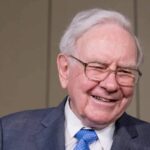Though talk of recession has fallen out of fashion faced with FED’s September rate cuts and the stubborn strength of stocks and cryptocurrencies, one prominent market expert believes investors would be wise to hedge against a crash properly.
Specifically, Nassim Taleb, the author of ‘The Black Swan,’ numerous other books, and a famous investor, opined on October 11 that the current U.S. financial situation is exceptionally precarious.
Taleb identified the ambiguity of the economy, which has simultaneously been booming and underperforming, the ‘crazy’ stock valuations, and the sheer longevity of the bull market as some of the risk factors that have been building up.
Additionally, ‘The Black Swan’ author pointed toward the U.S. debt as another risk factor, describing it as larger than can be handled. Indeed, the national burden has grown significantly larger than the gross domestic product (GDP) and is rising at an alarming rate.
Still – and despite IMF’s warnings – Taleb does not consider the debt to constitute a death spiral in its own right, but that it has vastly increased the vulnerability to external shocks – a danger that has grown increasingly pointed in recent decades as the global economies have become increasingly intertwined.
How to handle the risk of another ‘Black Swan’
The expert is not only hedging his position in the current situation but is also urging traders to do the same. He believes that the strong and protracted rallies for various shares have caused a more risk-on approach while reducing the overall carefulness of market participants.
Indeed, Universa Investments – the firm in which Taleb is currently an advisor – has itself started issuing more bearish predictions of late, and the company’s founder, Mark Spitznagel, predicted a ‘face-ripping rally’ for the benchmark S&P 500 index, followed by a crash at least as bad as 1929.
It is worth remembering that some of Nassib Taleb’s most famous work is centered on the impact of unforeseen events, and he has successfully profited from the Black Monday of 1987 and the Great Recession of 2008.
Will this be the most predictable unpredicted recession in history?
The ideas of unforeseen and unexpected may prove particularly important as, despite many analysts warning of an imminent recession for years, making the case for one has become difficult.
The market was declared an ‘everything bubble’ years ago but is, nonetheless, continuously trending higher, with even the COVID-19 shock lasting only briefly. Similarly, the high interest rates have been cause for endless recessionary fears, and yet, the S&P 500 has hit multiple all-time highs in 2024.
Constructing a bear case for Nvidia (NASDAQ: NVDA) is likewise difficult despite the chipmaker’s $2.5 trillion two-year rise, making it the prime candidate for the poster child of both the ‘everything bubble’ and the ‘AI bubble.’
Still, as Taleb pointed out, risks have been building up, and there are numerous others along with the ones he mentioned.
There is no shortage of major risks in 2024
In 2024, geopolitical risks are running high with the murderous war in the Middle East becoming ever larger, Russia posturing with changes to its approach to nuclear weapons, North Korea placing its artillery units on high alert, Egypt allegedly bombing Rapid Support Forces (RSF) in Sudan, and China executing massive drills in response to what is dangerously close to Taiwanese talk of de jure independence.
The artificial intelligence (AI) boom itself may not be what it appears. Among many consumers, the AI label is more of a ‘stay away’ sign than a call to buy, and some of the technology is, at best, dubious.
Furthermore, years of high inflation have heavily pressured consumers, an irreplaceable element of a healthy economy.
Earlier in 2024, Amazon’s (NASDAQ: AMZN) AI-powered stores proved to be remotely powered by poorly paid humans. More recently, Tesla (NASDAQ: TSLA) allegedly provided remote-controlled ‘Optimus’ robots in lieu of autonomous androids, calling their other showcased products into question.
Finally, though Taleb does estimate AI will continue to be a major and lucrative area of investment, it may not be the obvious companies – Google (NASDAQ: GOOGL), Microsoft (NASDAQ: MSFT), OpenAI, etc. – that thrive long-term. Many historical booms have witnessed firms rise to prominence only to fall into utter obscurity.









